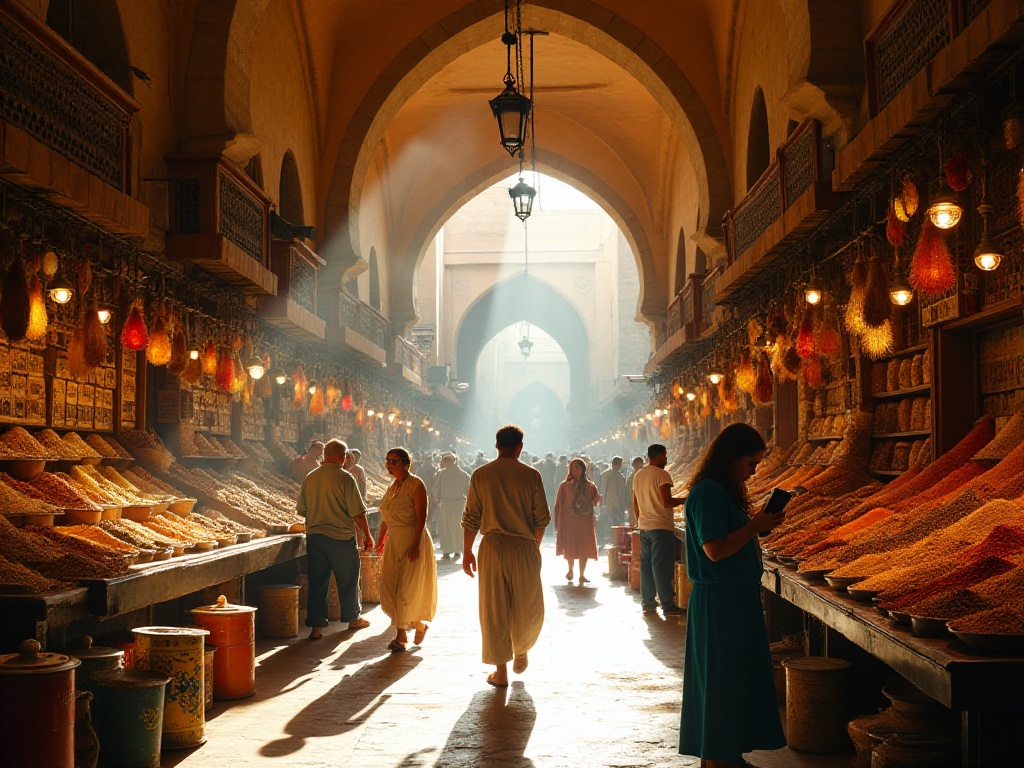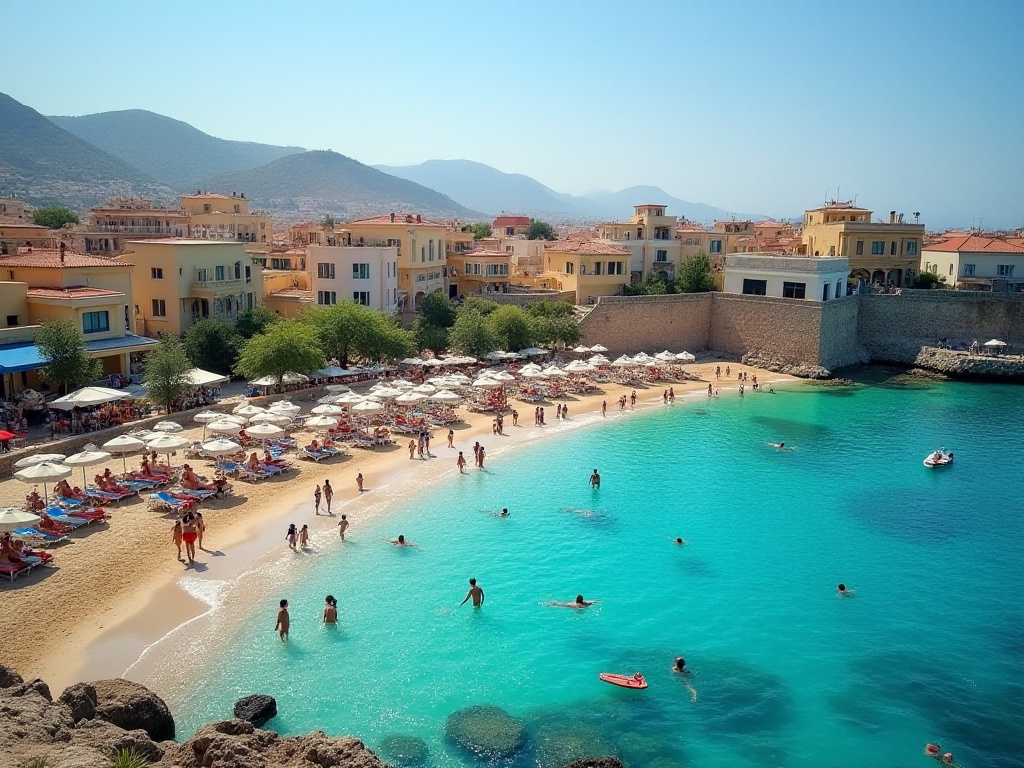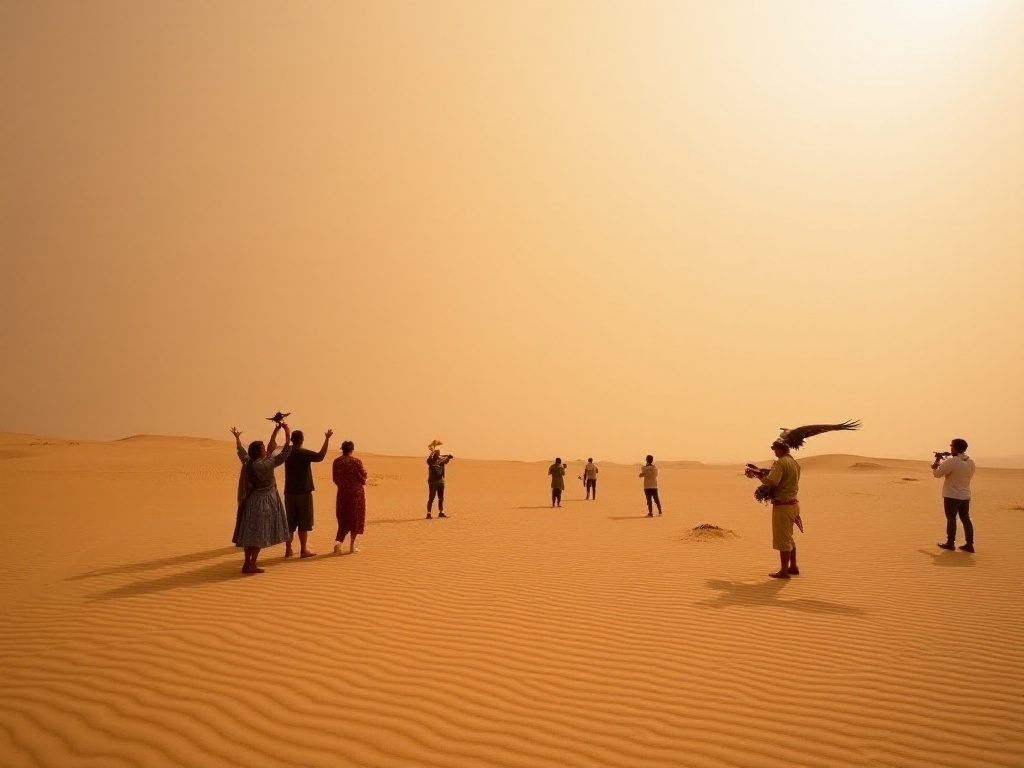Opening Chat
As a young person who's just starting to plan my own trips, I really envy those who can travel freely everywhere. After experiencing a few setbacks, I've gradually realized the importance of choosing the right travel time. I remember going to Bali with my best friend last year, expecting to take beautiful island photos, but it rained the entire week - either drizzling or pouring. We had no chance to properly enjoy the water. We ended up staying in the hotel playing cards and watching TV shows - it was absolutely miserable!
Then there was the time I went to Japan with my boyfriend to see cherry blossoms. We planned it six months in advance, but due to work, we arrived a week late and all the cherry blossoms had fallen. Although my boyfriend kept comforting me saying "fallen cherry blossoms are beautiful too," I was still super disappointed about missing the full bloom.
The worst was my European trip with friends last year. It was peak summer season, and tourist sites were packed everywhere. We waited in line at the Eiffel Tower for nearly three hours, and when we finally got up there, it was too crowded to take good photos. Looking at the pictures afterward, there were at least a dozen strangers in the background of every shot - it was a nightmare.
These experiences taught me deeply: choosing the right travel time can really elevate the entire travel experience by several levels! Through conversations with experienced travelers and my own experiences, I've gradually compiled some insights about choosing travel seasons, which I'd like to share with everyone today.
Peak Season Tales
To be honest, peak travel season is truly a love-hate relationship. I love the typically perfect weather, but hate how "perfect" the crowds are (not in a good way).
Last summer, I went to Santorini, a decision that now seems both wise and foolish. The wise part was that the weather was absolutely incredible - sunny every day, with blue skies and white clouds complementing the blue Aegean Sea, creating unbelievable beauty. The foolish part was that it was incredibly crowded.
Want to take a photo of the famous blue-domed church? Dream on! Unless you're willing to line up at 4 AM. One girl in our group was particularly determined and actually went to queue at 4 AM. When the rest of us woke up and found her, there were already seven or eight people ahead of her! Her final photos were indeed perfect, but sacrificing a beautiful morning's sleep makes me feel sorry for her.
The accommodation prices were terrifying. Our ordinary sea-view room cost 1,200 euros per night! My friend was shocked when she saw the price, saying that money could get you a week at the Four Seasons in Beijing. But there was no choice - that's just how peak season is. We could only console ourselves: we might only come here once in our lifetime, so be it.
But thinking carefully, peak season does have its irreplaceable charm. Take the Mediterranean - the sunshine in July and August is truly the best, the sea temperature is perfect, and lying on the beach sunbathing is pure heaven. I spent a perfect afternoon on a Mykonos beach, and despite the crowds coming and going, the warmth of the sun, the feeling of the sea breeze, and the distant music made it incredibly relaxing.
Plus, there are many more activities during peak season. In Santorini, we caught an outdoor film festival, and watching movies under the stars was really special. There were more street performers too, with music performances everywhere bringing vitality to the whole town. Restaurants also offered various seasonal fresh seafood - although expensive, the taste was undeniably excellent.

Shoulder Season Sharing
If I had to recommend the best time to travel, I would choose shoulder season without hesitation. It's like hitting the jackpot: nice weather, fewer people, affordable prices - simply the perfect time for travel.
Last May, I spent two whole weeks in Paris, an experience that made me fall completely in love with shoulder season travel. I found an amazing Airbnb near Notre-Dame Cathedral, in an unbeatable location. The most amazing part? The price was only 60% of peak season rates! The host told me it was because the tourist season hadn't started yet, so prices were lower.
During my time in Paris, every morning I would buy coffee and a croissant from a nearby café, then slowly walk to the Seine. I could always find an empty bench by the river, sometimes sitting there for an entire morning. Watching boats slowly pass by, with scattered tourists along the bank, all of Paris felt like a private theater prepared just for me.
Shoulder season has many other advantages. For instance, there's barely any queue at museums - it took me just ten minutes to enter the Louvre. Restaurants are easy to book too, even some Michelin-starred ones accept same-day reservations. While shopping, sales staff are more patient because there are fewer customers, so you get better service.
The weather is just right too. Not unbearably hot like summer, nor freezing cold like winter. The spring and autumn sunlight is particularly gentle, so you don't have to worry about harsh light when taking photos. Plus, it often rains lightly during this season, making the city especially clean and the air particularly fresh.

Low Season Discussion
To be honest, I used to be prejudiced against off-season travel. I always thought it would be inconvenient: bad weather, many attractions closed, feeling like you couldn't really enjoy yourself. But my experience in Venice last winter completely changed my perspective.
It was mid-December, and Venice had entered its tourism low season. Five-star hotels along the canal were only three to four hundred euros per night, at least two-thirds cheaper than peak season. What delighted me most was that St. Mark's Square was completely empty - no worry about being jostled by other tourists.
Although it was indeed a bit cold, walking through Venice's narrow alleys wrapped in a scarf felt particularly artistic. Those narrow lanes were almost devoid of tourists, and we often encountered locals instead. Once when we got lost, a kind elderly Venetian gentleman helped us find our way and recommended an authentically local restaurant.
What impressed me most was a rainy afternoon. We walked along the canal with umbrellas, watching gondolas glide by in the rain - the whole scene was very cinematic. That evening, we went to a small local tavern, ordered a bottle of wine, and listened to the owner tell stories about Venice's history. It felt especially warm and cozy.
Off-season Venice gave me a completely new travel experience. Without the hustle and bustle of tourists, the entire city seemed to return to its most authentic state. Although many shops were closed, the ones that remained open were the most genuine. Plus, during low season, locals are more willing to interact with tourists, allowing you to experience the city's real living atmosphere more authentically.

Seasonal Patterns
Every place has different charms in different seasons, something I deeply understand. Take Japan for example - in spring you can see dancing cherry blossoms; in summer you can experience various summer festivals; in autumn you can admire the red leaves; in winter you can enjoy hot springs and skiing.
Last year, I visited Japan in different seasons. I went to see cherry blossoms in late March - although it was crowded, the blossoms were breathtakingly beautiful. The whole park was covered in pink petals, walking under the trees felt like being in a fairy tale. In July, I attended the Gion Festival in Kyoto, where streets were filled with people in yukatas, creating a very festive atmosphere. In November, I went to see the red leaves - those maple leaves red as fire were truly stunning. This January, I went skiing in Hokkaido, and the feeling of gliding on powder snow was absolutely amazing.
Europe is similar. In spring you can see fields of tulips in Holland, in summer you can see purple lavender in Southern France, in autumn you can catch Oktoberfest in Germany, and in winter you can experience various snow sports in Switzerland.
Each season has its unique beauty; the key is to choose according to your interests and purposes. For example, if you like photography, spring and autumn light might be more suitable; if you want to experience festivals, you might need to choose specific times; if you want to save money, low season might be a better choice.

Practical Advice
After so many travel experiences, I've summarized some tips that can help make travel both economical and enjoyable.
First, learn to travel during off-peak times. For example, during summer peak season, instead of going to the crowded Mediterranean, consider Northern Europe. Northern European summers are actually very pleasant, with moderate temperatures, and because it's not a traditional tourist season, prices are much lower. In winter, consider Southeast Asia. While Europe is experiencing cold winter, Southeast Asia is in its most comfortable season.
Timing is also crucial when booking flights. I've found that transition periods around holidays are particularly economical for booking flights. For example, the first week after National Day holiday, or the last week before summer vacation starts, flight prices are often much cheaper than usual. Plus, you won't encounter too many people when traveling during these times.
There are also money-saving tricks for accommodation. For instance, when booking on Booking.com or Airbnb, you can choose rooms with free cancellation and regularly check for price changes. If you find the price has dropped, you can cancel your previous booking and rebook at the lower price. I once saved nearly a thousand yuan using this method.
Also, learn to utilize various promotions. Many airlines and hotels offer special deals during off-season - you can follow their official websites or subscribe to their emails. Some credit cards also have travel-related benefits, like flight cashback or hotel points, which can help save quite a bit of money.

Concluding Thoughts
Through all these travels, I increasingly feel that choosing a travel season is like choosing a rhythm of life. You don't necessarily need to pursue the so-called "best season" - finding the time that suits you best is what's most important.
Now I no longer try to visit Japan exactly when cherry blossoms are in full bloom, or go to Santorini during the most popular season. Instead, I prefer experiencing a place slowly during a relatively quiet season. Sometimes visiting a place during off-season can lead to unexpected surprises.
Actually, the most important thing about travel isn't going to the most popular places, but finding the experience that suits you best. Everyone has different travel philosophies - some like bustling crowds, others prefer tranquility; some pursue perfect photos, others enjoy casual strolls. Choosing a season that suits you can make travel more meaningful.
Finally, I want to say that regardless of which season you choose to travel in, the most important thing is to maintain an open and curious heart. Because true travel isn't just about seeing scenery, it's about experiencing life and growing spiritually.
Oh, if you also have interesting travel experiences, feel free to share them in the comments. Next time, I plan to write an article about how to plan the best travel routes according to different seasons - stay tuned!








